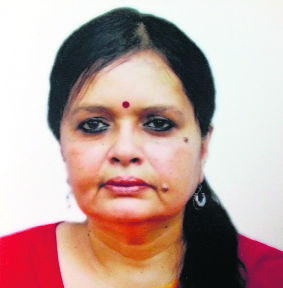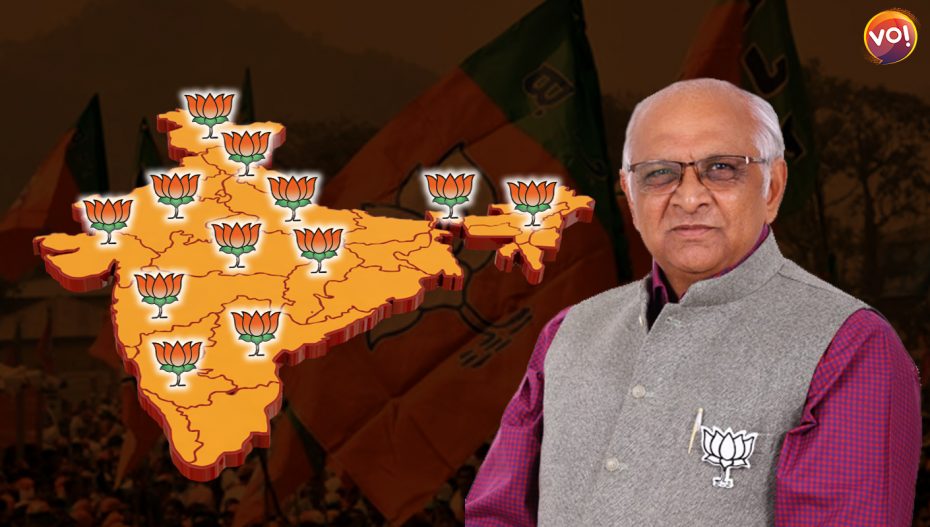Winning an election and re-constituting a ministry are interlinked as the latest cabinet recast in Gujarat, under chief minister Bhupendra Patel, demonstrated. In experimenting with a “no-repeat” norm, veterans such as Nitin Patel, Pradipsinh Jadeja, Bhupendrasinh Chudasma, Kaushik Patel and Saurabh Patel, some of who have been part of every government since Keshubhai Patel’s time in 1995, fell by the wayside to make way for newer and younger faces. The BJP apparently borrowed a leaf from Pinarayi Vijayan’s book. When the Kerala chief minister won a second term in office, he made bold to drop his senior colleagues who included the fabled health minister KK Shailaja, an international celebrity who caught the global media’s attention for competently negotiating the Nipah and Covid-19 viruses. Like the CPI(M), the BJP works on the principle that individuals are secondary to the party organisation with recent exceptions of course.
It was relatively easy for the BJP’s central command to conduct a clinical and ruthless overhaul of the Gujarat ministerial council because the state is Prime Minister Narendra Modi’s backyard and his writ runs unchallenged over the state leaders, MPs and MLAs. There was not a squeak from the seniors who were dropped such as Nitin Patel, Jadeja and Chudasma against conventional belief and expectations. In principle, the “no-repeat” idea should work in politics if only to demolish vested interests which develop personal rather than political stakes in holding power and profiting from its perks. In practice it doesn’t necessarily work, even in the BJP. In the pre-Modi era, elders Atal Bihari Vajpayee and LK Advani were essentially conservative and rarely experimented with the power structures. But Gujarat was an exception because a section of the BJP wanted Keshubhai out without devising a Plan B on who should replace him. The BJP’s first full-fledged government in Gandhinagar was destabilised. Karnataka was the other state on the central command’s radar and BS Yediyurappa, its first CM, was never allowed to function autonomously by Delhi.
The “no-repeat” experiment was tried out as a test in 2017 in the Delhi Municipal Corporation or MCD elections. All three MCD bodies were under the BJP for 10 years and embroiled in a web of allegations of corruption, nepotism and inefficiency. The Aam Admi Party had swept the 2015 Delhi assembly polls. Against this backdrop, it seemed virtually impossible for the BJP to repeat its showing in the MCD polls. But it dropped all the sitting Mayors and councillors and brought in new and younger candidates, withstanding the threat of rebellion. Manoj Tiwari, the MP who then headed the Delhi BJP, cited the example of Surat’s Darshana Jardosh who was similarly refused a ticket in a local body election. She was subsequently fielded in the Lok Sabha polls which she won. The BJP’s reasoning was that the local civic bodies were nurseries to groom leaders, an explanation that was not bought by those in MCD who were shown the door.
However, the experiment succeeded and the BJP was back with a bang in the MCD, despite the AAP’s spectacular debut.
Take the example of Karnataka, where too the BJP replaced a sitting CM, Yediyurappa with a relatively younger Basavaraj Bommai. Incidentally, Bommai joined the BJP only in 2008 from the Janata Dal. Karnataka’s political dynamics did not give the BJP or Modi the latitude for a Gandhinagar-like revamp. The BJP legislature party survives on the mercy of 17 defectors from the Congress and the Janata Dal (Secular) or JD-S; some of them came in because of Yediyurappa but his departure did not push any of them out because they had all bargained for ministries.
In the end, Bommai retained 23 ministers from the previous regime in his 29-member ministerial council including controversial ones like B Sriramulu (identified with the Bellary mines) and K Sudhakar. He excluded committed Yediyurappa loyalists such as Rajugowda, Poornima Sreenivas and MP Renukacharya as well as a deputy CM, Laxman Savadi, who Yediyurappa inducted despite him being caught watching a porno clip on his phone in the assembly. Of the Congress-JD-S renegades, 10 became ministers. The Karnataka composition reflected the limitations of the “no-repeat” formula. A party would have to be exceptionally strong to enforce it at will.
So too in Assam where the BJP returned after the last elections, with a new CM, Himanta Biswa Sarma. Even Sarma, purportedly the lord and master of all he surveys in the north-east, had to be mindful of a host of factors while making his ministry. He could bring in only six new faces in the 13-member cabinet and retain seven from the Sarbananda Sonowal period. Allies like the Asom Gana Parishad and the United People’s Party Liberal had to be accommodated besides which regional parity had to be maintained. These circumstances tied Sarma’s hands.
While the CMs of Uttarakhand, another poll-bound state, were changed twice, the real test of the “no-repeat” concept will be seen when candidates are short-listed. The BJP swept the 2017 elections, winning 57 of the 70 seats. But a recent internal survey revealed that at least 20 of the MLAs were “unpopular” in their constituencies and could be axed. With this BJP-ruled state seating and unseating three CMs, it is clear that no state leader will be allowed to have the last word in nominating candidates. The central command will have the final say.
Uttar Pradesh is another ball game. If the chief minister, Yogi Adityanath, a law unto himself, can have his way, he would not repeat most of the sitting MLAs. They were not selected by him because he was not the declared CM candidate before the 2017 elections. Having consolidated his hold over the government since then, there is no way that Modi or Amit Shah, the home minister, can ignore Adityanath’s interventions in the crucial process of drawing up candidates. He has his apparatuses that run parallel to the BJP organisation, so it is likely that in the face of competition from Adityanath, many of the BJP’s incumbent MLAs might not be re-nominated.
As a textbook notion, no-repeat might sound good; in practice, political exigencies curtail its application even in Modi-ruled BJP.













